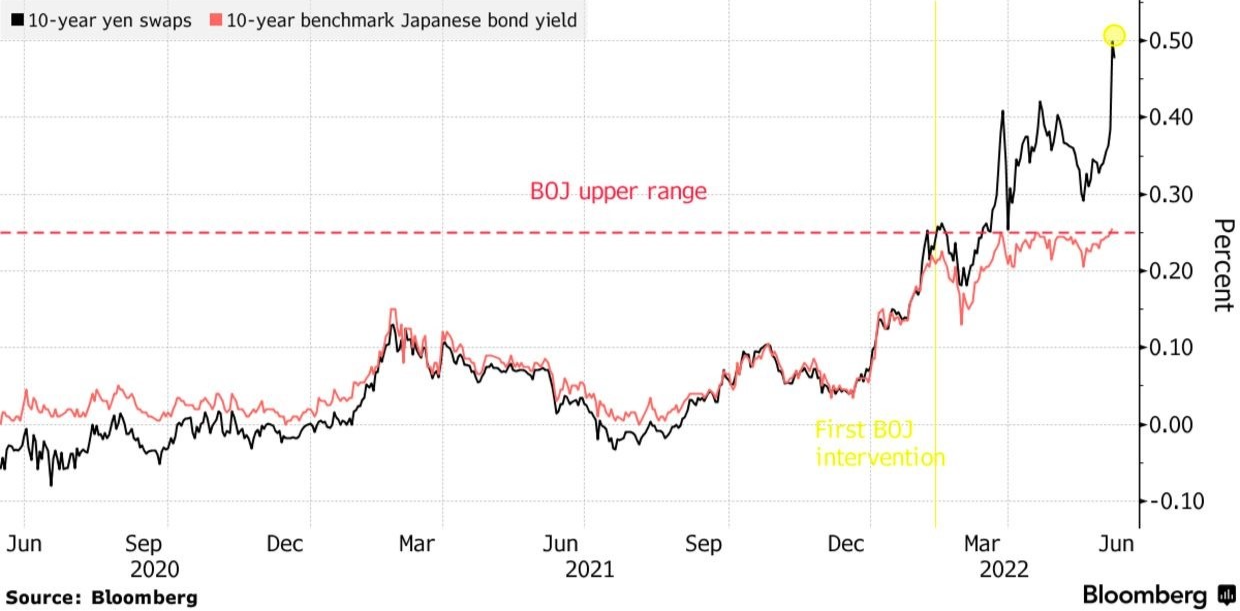Central bankers across the world are facing tough decisions, but the Bank of Japan might have it the worst. The Japanese Yen is at its cheapest relative to the dollar in twenty-four years, as the BoJ signaled that it would continue to maintain its ultra-loose policy even as central banks around the world enter forceful rate-hiking cycles. The volatility and uncertainties around the value of the Yen make it difficult for Japanese people and businesses to make smart economic decisions. More concerning, the rapid depreciation of the Yen caused the ten-year Japanese bond to temporarily yield above .25 percent, an upper bound that the BoJ has promised to defend at all costs by purchasing large quantities of bonds. If speculators continue to sell into the Japanese bond market, the BoJ’s expensive yield curve control will ultimately falter, especially as the Fed continues to hike aggressively and the BoJ is forced to grow its balance sheet in response. The central bank is on the verge of losing credibility (once the yield breaks through the bank’s “line in the sand”), which would likely lead to volatility and dysfunction across global interest rate markets.

Source: Bloomberg
Thomas Triedman, a sophomore at Yale, is a Summer 2022 Collegiate Associate at the Manhattan Institute
Interested in real economic insights? Want to stay ahead of the competition? Every Wednesday, e21 delivers a short email that includes e21 exclusive commentary and the latest market news and updates from around the Web. Sign up for the e21 Weekly eBrief.
Photo by NatanaelGinting/iStock
